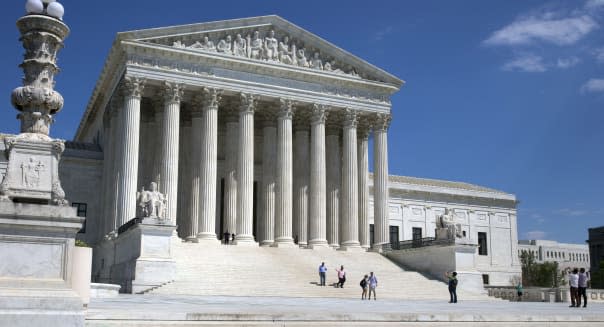U.S. Justices Weigh Limits to Cellphone Searches by Police

By Lawrence Hurley
WASHINGTON -- U.S. Supreme Court justices Tuesday appeared to seek a compromise over whether police officers need warrants to search cellphones.
In two hours of oral arguments before the court, the justices appeared sympathetic to the need of police officers to quickly search phones when a suspect is arrested but were also wary of privacy concerns raised by the amount of personal data now kept on mobile devices.
The court indicated it could issue a ruling that says police might need a warrant in some circumstances but not in others. It was unclear what rationale the court would embrace.
One possible outcome would be for a search not to require a warrant so long as the evidence in question was directly related to the criminal investigation.
Several justices appeared concerned about granting the police unfettered access to the vast amount of information contained on smartphones.
%VIRTUAL-article-sponsoredlinks%"People carry their entire lives on cellphones," Justice Elena Kagan said.
On the other hand, Justice Anthony Kennedy noted that criminals have embraced new technology, which has enabled them to be "more dangerous, more sophisticated, more elusive."
The nine justices are weighing cases from California and Massachusetts arising from criminal prosecutions that used evidence obtained without a warrant from a judge.
The legal question rests on whether the Fourth Amendment to the U.S. Constitution, which bars unreasonable searches, requires police following an arrest to get court approval before a cellphone can be searched.
The two defendants challenging their convictions, David Riley and Brima Wurie, say evidence found on their phones shouldn't have been used as evidence at trial because the searches were conducted without warrants.
Should the court limit the scope of what police can search without a warrant, both men could still lose as the searches in their cases may still not need a warrant. Rulings are expected by the end of June.
The cases are Riley v. California, 13-132 and U.S. v. Wurie, 13-212.
